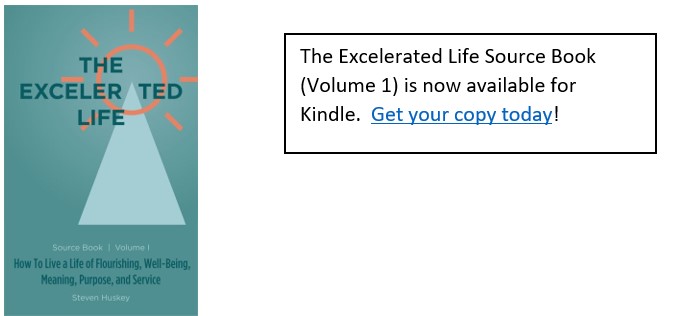It is better to do the wrong thing than to do nothing. Any action you take leads you closer to your goal. So don’t wait till you can do it perfectly. Take imperfect action, learn, do it again.
Title Photo by Ryan McGuire
Knowledge and Power
“Knowledge is power: You hear it all the time but knowledge is not power. It’s only potential power. It only becomes power when we apply it and use it.
Somebody who reads a book and doesn’t apply it, they’re at no advantage over someone who’s illiterate.
None of it works unless YOU work. We have to do our part. If knowing is half the battle, action is the second half of the battle.”
~ Jim Kwik
Why Movement Is Necessary To Accomplish Goals
“When you’re in motion,” writes James Clear, blogger and author of Atomic Habits, “you’re planning and strategizing and learning. Those are all good things, but they don’t produce a result.” [Clear]
Planning, strategizing, learning; these are all necessary parts of accomplishing our goals, but by themselves, they are not sufficient. Developing a strategy is important. Planning is required. Learning must be done. But movement . . . actually doing the steps of your strategies and plans . . . is crucial.

The principle of Excelerated Action™ brings these components under your control. If you focus exclusively on the process, you are prone to the illusion that you are progressing toward your goal, when in fact you are not. When you focus only on the outcome, you may require huge amounts of self-discipline and willpower to keep moving — more than most of us can muster. The Excelerated Action™ practices allow you to focus on the desired outcome AND on the processes to achieve the outcome. It combines Excelerated Self-discipline™ — doing what you say you will do and Excelerated Movement™ — taking right action in pursuit of your goals to give you the improved efficiency and effectiveness of Excelerated Productivity™. Today, we focus on Excelerated Movement™.
Why We Don’t Move Toward Our Goals
Often, we think we are moving because we are engaged in activities. But these activities don’t always constitute movement.
For example, we confuse research with productivity. Research keeps you busy but with no tangible results. Or we get too many opinions and conflicting advice from our research and don’t know what to follow. This leads to the well-known paralysis by analysis.
Sometimes, we try to figure out all the steps we need to take to get us to our destination. But as Jeff Olson said, “You have to start with a plan, but the plan you start with will not be the plan that gets you there.” [Olson]
And one of the big killers of movement is procrastination and perfectionism: we think we can’t do it perfectly yet, so we don’t start.
When We Don’t Choose Movement
Regardless of the reason, when we don’t move towards our goals, momentum dies. When you take a step forward, day after day, something important happens. You start to build momentum.
Have you ever pushed a stalled car? A car weighs several thousand pounds and trying to push one is no small feat. It takes loads of muscle power to start it rolling. After much grunting and straining on your part, the car begins to move slowly. But as you continue to push, it rolls faster and faster. And it becomes easier and easier to keep it moving. It takes only a fraction of the effort that it took to get started to keep it rolling.
Here’s the sad part. If you quit pushing, the car rolls to a stop. And now you have to expend all the effort and grunting and straining to get it started again. You’ve lost the power of momentum.

How Taking Imperfect Action Helps
One of my favorite quotes is from Cathy Stucker, The Idea Lady. It has stuck with me and I’ve used it over and over. It goes like this: “I have a firmly-held belief that it is better to do the wrong thing than nothing. Any action you take will lead you closer to your goal.”
Remember, the Universe rewards action. And the reward often comes in the form of feedback to help you improve or to learn the next step. Actions result in feedback and feedback leads to more effective action. Are you stuck on something, waiting till you can do it perfectly? Are you afraid to start because you don’t know how to finish the entire project? Do you think you have to know everything about everything before you get started?
By taking imperfect action, you harness the power of feedback and the ability to determine your next step.
How To Take Imperfect Action
Keep these steps in mind to help you determine and perform your own imperfect action steps.
- Write your idea or goal down. Get it on paper and read it every day.
- Shift your mindset from perfectionist thinking to beginner thinking. When you’re a beginner, you aren’t expected to know how to do everything perfectly.
- Research it quickly. Don’t get caught up in paralysis by analysis. Limit your research. Reframe your research so that it’s at least 50% real-world tests that you do yourself, rather than just reading what others have to say.
- Identify the most important thing to learn, and target your imperfect action around it. Decide which imperfect action will help you learn more than you know today. Then cut your learning curve by finding people who have succeeded, find out what they did, and adapt it to your situation.
- Take one small action, any action. Learn by doing, not by thinking.
- Give yourself a time limit or deadline.
- Show up one imperfect action at a time. Practice consistency.
Embrace Failure
Embrace failure. Remember, it isn’t win or lose. It’s win and learn. “Life,” I once heard Brian Tracy say, “is a series of problems interrupted by the occasional crisis.” So learn from your failures, setbacks, missteps, mistakes, and accidents. Here’s how:
- Accept the current situation as it is – don’t spend time wishing for a different outcome or engage in “what if’s”.
- Stay positive. You are likely not overjoyed by your failures, but if you can take the broader perspective and see the failure or problem as a gift from the divine, you are more apt to find the lesson, the seed of good.
- Regroup. It’s OK to take a few minutes or a few hours or a few days to regroup, to lick your wounds, and to take care of yourself. No pity parties but a little self-care is called for. Remember the mantra, “No blame, no shame”.
- Learn the lesson. “We learn wisdom from failure much more than from success,” said Samuel Smiles, author of such works as Self-Help, Thrift, and Character. “We often discover what will do, by finding out what will not do.” Learning the lesson leads to growth.
What Do I Do Now
Consider your current state. Are you making progress? Do you have momentum? If not, what can you do to get started? Do you have a destination in mind? If you don’t, that’s the first step.
If you do, what is your next step toward that goal? Once you get momentum, do your best to keep it going. As one of my coaching mentors said, “Take imperfect action and be patient.”
Take Imperfect Action
In the Excelerated Life™ plan, Excelerated Movement™ is defined as “taking right action in pursuit of your goals”. We could also say “taking imperfect action in pursuit of your goals”. Remember, “it is better to do the wrong thing than nothing. Any action you take will lead you closer to your goal.” Any action you take will get you closer, so don’t wait to do it perfectly. Take imperfect action, learn, do it again. That’s how you embrace your Excelerated Life™!
What keeps you from taking action on your desires?
Or, how do you keep the momentum going?
Share your thoughts by leaving a comment below.
Excelerated Movement™ — taking right action in pursuit of your goals — is one step in creating your Excelerated Life™, a life of flourishing and well-being, and a life of meaning, purpose, and service.
Read more about the Excelerated Life™.
Resources:
Clear, James. Atomic Habits: Tiny Changes, Remarkable Results. New York: Avery, an imprint of Penguin Random House LLC, 2018.
Olson, Jeff. The Slight Edge. Austin, TX: Greenleaf Book Group Press, 2005-2013.


